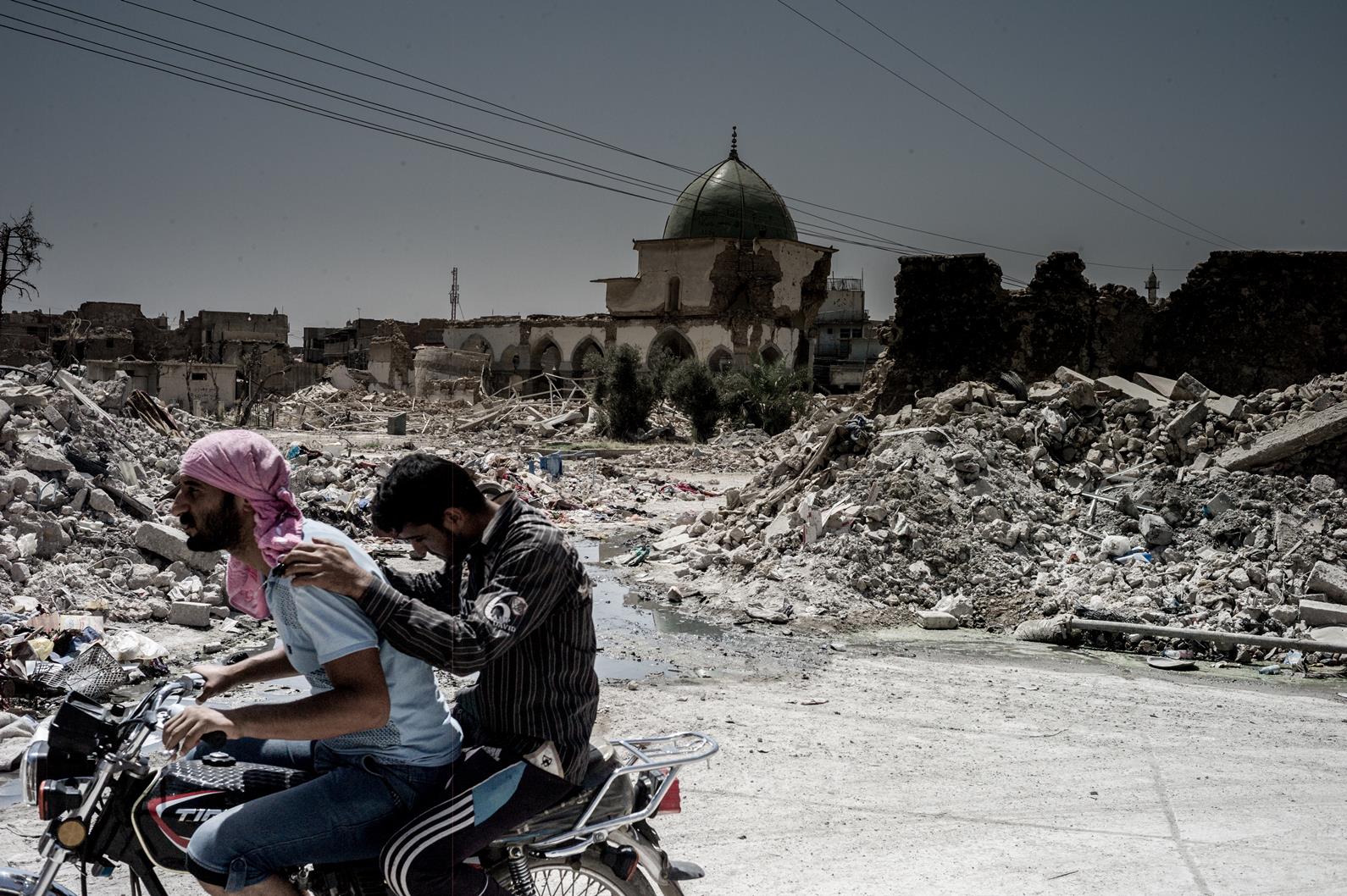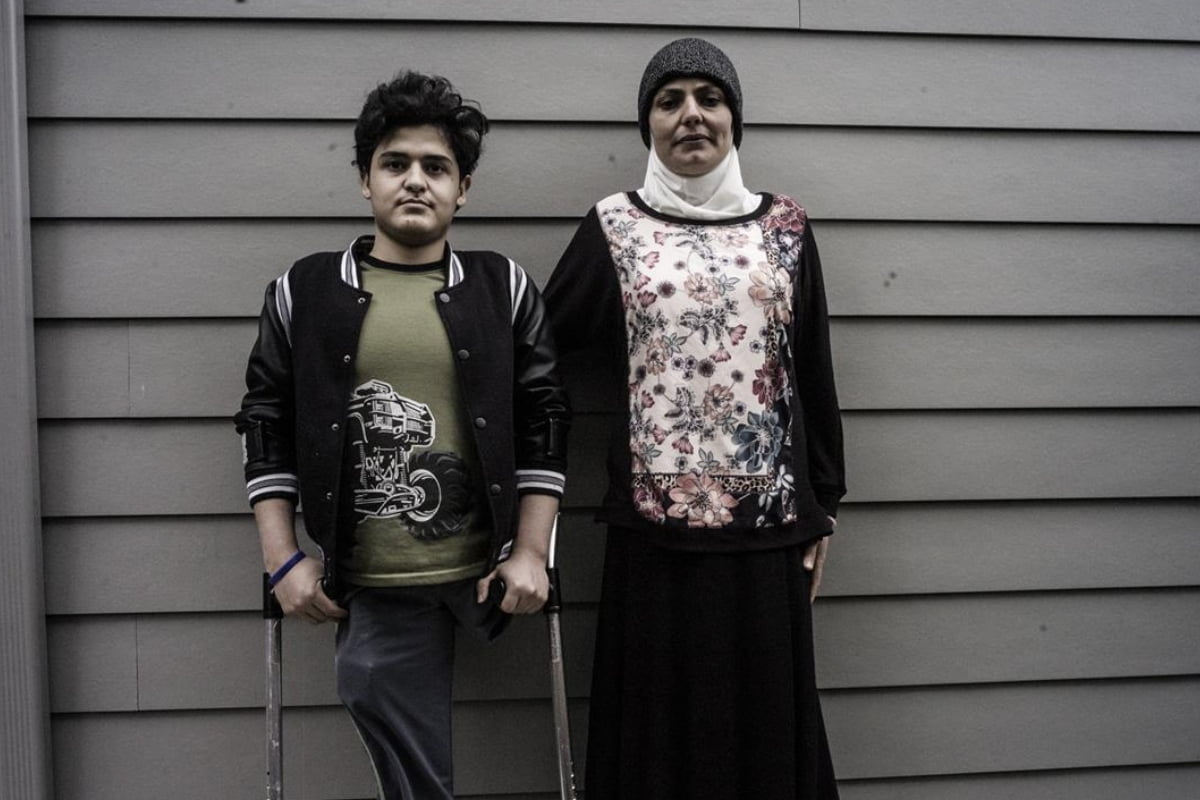A recent documentary about the invasion and occupation of Iraq shows the chaos and catastrophe that Western imperialism has created in the wake of its military adventures. Only revolution across the Middle East can end this barbarism.
Once Upon a Time in Iraq is a five-part TV documentary series that tells the story of the 2003 American-led invasion and its disastrous aftermath through the eyes of the civilians, journalists and soldiers who lived through it.
The programme provides harrowing testimony from those who survived the conflict. This completely demolishes any notion that the toppling of Saddam Hussein and the years of occupation that followed left Iraq a safer, more stable and functioning place.
Rather, these testimonies reveal how a decade-and-a-half of war has destroyed the country’s social and economic fabric, and left its people living under the constant threat of violence.
Occupation
The series offers a profound and shocking exploration of these events. One weakness, however, is a tendency to read the disastrous management of the occupation as a product of poor judgement or an insufficiently humane outlook.
This charitable interpretation obscures the unambiguously imperialist nature of the invasion. It suggests, instead, that a more measured and compassionate strategy might have yielded better results.
Colonel Nate Sassaman figures prominently in this tale of tragic errors and misguided leadership. As commanding officer of American forces in the Sunni Triangle, Sassaman’s efforts to engage the local population in efforts to ‘reconstruct’ a decimated Iraq earned him praise among politicians and journalists.
However, this campaign to win hearts and minds in the region proved ineffective in quelling the growing armed resistance to the occupation. And so Sassaman’s forces began carrying out brutal and indiscriminate reprisals against insurgents and civilians alike.
The filmmakers largely attribute this change in approach to Sassaman’s sense of personal grief and rage following the death of one of his men. Yet these aggressive tactics were used by American commanders throughout Iraq – not just in the Sunni Triangle – with similarly catastrophic results.
This fact is clearly demonstrated in the episode dedicated to the 2004 Battle of Fallujah. In this infamous battle, US forces treated all Iraqis who had not evacuated the city as enemy combatants. Inevitably, those too poor or too vulnerable to escape accounted for most of the 600 civilians that died in the assault, around half of which were women and children.
Imperialism
 Whether a light or heavy-handed approach was used, none of the attempts to bring the Iraqi population to heel were carried out in the interests of ‘freedom’, ‘democracy’ or ‘reconstruction’.
Whether a light or heavy-handed approach was used, none of the attempts to bring the Iraqi population to heel were carried out in the interests of ‘freedom’, ‘democracy’ or ‘reconstruction’.
From the outset, the aim of the occupation was the pillaging of Iraq’s natural wealth; the privatisation of its state-owned assets; and the institution of a puppet regime to dutifully manage the interests of US imperialism.
This much is evident in the first episode, covering the chaos that ensued immediately after the invasion. American troops stood by and watched as schools, hospitals, and even the central bank were looted by an Iraqi population who had experienced years of grinding poverty – largely as a result of US-imposed sanctions.
The rest of Iraq’s basic infrastructure was left to disintegrate. But the Ministry of Oil, which housed the means of controlling the country’s vast and lucrative reserves, was given a heavily-armed security detail. This is a blatant indication of the true nature of the occupation.
Effects
Whatever the sincerity of his testimony, Sassaman does supply the most succinct explanation of the long-term effects of the invasion: “We sowed the seeds of ISIS in 2003. We did.”
The hatred towards the coalition forces and the brutal and corrupt regime of Nouri al-Maliki is palpable in the interviews with Iraqis who lived through the occupation. “I’ve never wished harm on anyone, but I wish it upon them,” says Alaa, who lost her eye as a girl when she was caught in the crossfire between US and insurgent forces in Baghdad.
Such animosity and fear made for fertile recruiting ground for extreme Islamist groups. Yet prior to the invasion, jihadi organisations had wielded virtually no influence in Iraq.
“After years of oppression from corrupted troops and government, people felt free for the first time in their life,” explains Omar, a journalist living in Mosul. “This is what ISIS was selling to the people. That Maliki and his government is gone.”
As with the American and British invasion forces before them, some Iraqis greeted ISIS as liberators. But they soon came to know them only as butchers.
Legacy
The legacy of the 2003 invasion of Iraq is a country riven by violence, poverty and disorder. “This generation has seen absolutely nothing but this now,” says Waleed, who was a teenager when coalition troops arrived in Iraq. Like millions of Iraqi youth, his entire adult life has been defined by an ongoing cycle of destruction.
Yet as footage of the mass demonstrations in January of this year shows, the years of devastation have not diminished the revolutionary potential of the Iraqi working class.
Only through socialist revolution across the Middle East can future generations be spared the intolerable suffering that imperialism has wrought on Iraq and the entire region.
The documentary is available to watch on the BBC iPlayer until July 2021.






